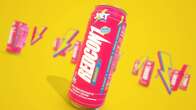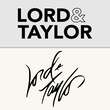Branded is a weekly column devoted to the intersection of marketing, business, design, and culture.
Costco is known for many things—deeply loyal customers, $1.50 hot dogs, selling gold bars—but corporate activism isn’t really one of them. And that may be exactly why its recent decision to push back on a call to dismantle its diversity, equity, and inclusion program has been attracting attention. From Walmart to Ford to Google, major companies and brands have been deemphasizing or scaling back DEI policies that right-wing politicians and pundits have labeled “woke” and bad for business. So it’s striking to see such a mainstream brand explicitly buck the trend—practically on the eve of a new Trump administration likely to amplify “woke mob” critiques, no less.
But what’s really notable isn’t just Costco’s stance, but how calmly and firmly grounded it is in characterizing DEI as a useful and effective strategy—which is good for customers, employees, the brand, and the bottom line. In a cultural back-and-forth that’s been defined largely by posturing, pandering, and threats, Costco is trying to stick to business.
The criticism of Costco’s DEI efforts came in the form of a recent proposal to shareholders, in advance of the company’s January 23 shareholder meeting, from the National Center for Public Policy Research, which describes itself as a conservative think tank. Citing recent legal decisions, it argued that the membership-based warehouse retailer’s policies—it has a chief diversity officer, “appears to” factor race and gender into some hiring decisions, and so on—may raise “reputational and financial risks.” This includes potential lawsuits from employees who believe they’ve suffered “illegal discrimination because they are white, Asian, male, or straight,” the proposal adds, calling on Costco to publish a report on those alleged risks.
In advising shareholders to reject this proposal, Costco’s board pointed out that the National Center for Public Policy Research is hardly a neutral observer, having referred to its targets as “corporate executives who are most woke and most hard-left political in their management,” “inimical to the Republic,” and “shameless monsters.” The center’s agenda, the response continued, “is not reducing risk for [Costco] but abolition of diversity initiatives,” and more broadly “responsible for inflicting burdens on companies with their challenges to longstanding diversity programs.”
But the real meat of its response was a straightforward defense of DEI practices and goals that have “rewarded our shareholders.
“We believe that these efforts enhance our capacity to attract and retain employees who will help our business succeed,” the response reads, a “critical” issue for a company with 300,000 workers. Moreover, its member-customers come “from all walks of life and backgrounds,” it continues. “As our membership diversifies, we believe that serving it with a diverse group of employees enhances satisfaction. Among other things, a diverse group of employees helps bring originality and creativity to our merchandise offerings, promoting the ‘treasure hunt’ that our customers value.” Customer feedback, the statement notes, that many “like to see themselves reflected” in the employee base they interact with.
Diversity in the chain’s supplier base has similar benefits, it adds: “We believe that it fosters creativity and innovation in the merchandise and services that we offer our members.” While Costco of course monitors the law and its own practices, the report concludes, to launch an internal evaluation of DEI risks is not a good use of resources.
Inevitably, some DEI opponents have responded with calls on social media to boycott Costco, but so far the chatter has been mixed and certainly hasn’t shown the kind of momentum that marked the Bud Light backlash. But, the National Center for Public Policy Research certainly isn’t backing away either, with a staffer telling the Los Angeles Times that any burdens companies may face in unwinding DEI practices “are of their own making as they seek to misuse shareholders’ money to advance neo-Marxist and neo-racist ‘equity’ agendas.”
Still, Costco’s matter-of-fact stance feels like a noteworthy development. While this is hardly the first airing of a business case for DEI—and that’s one reason the core values of DEI are likely to survive even as its positioning evolves—it’s a significant one: Costco is a massive brand with a long track record of mainstream success, and it’s making a wholly pragmatic argument, not pandering to one group or demonizing another. And that’s not about corporate activism—even in a contentious political environment. It’s just business.









No comments